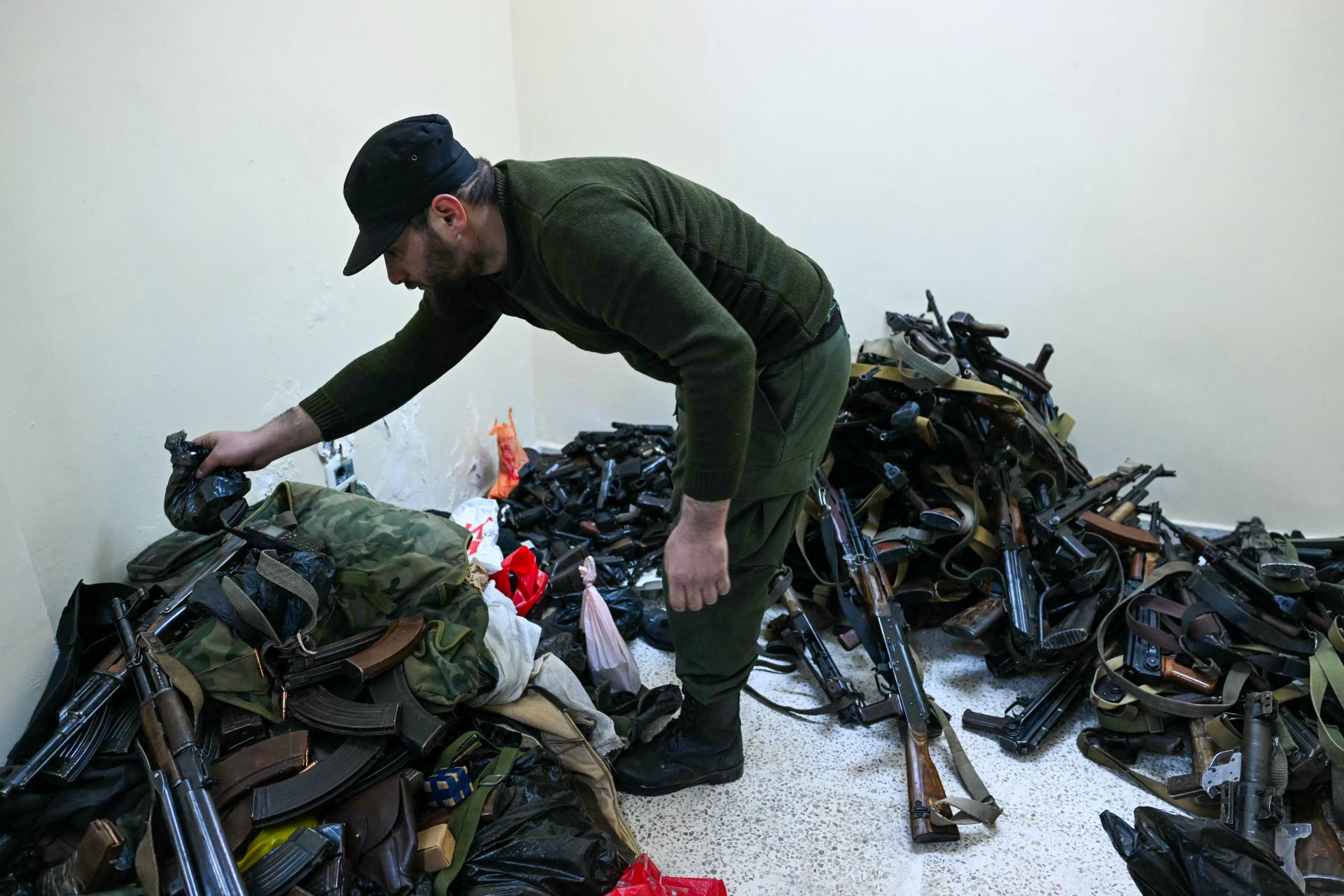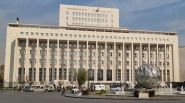- Home
- Middle East
- Syrian Soldiers Hand in Weapons, Hope for Quiet Lives

A member of Syria's new authorities arranges weapons as Syrian soldiers, police and a some civilians surrender their weapons and register with the authorities, in the western port city of Latakia, on December 16, 2024. Islamist-led rebels took Damascus in a lightning offensive on December 8, ousting president Bashar al-Assad and ending five decades of Baath rule in Syria. The transitional government, which took control of Syria on December 8, is registering the men city by city. ©Photo by OZAN KOSE / AFP
When Syria's new government put out a call on social media for soldiers and police to lay down their arms and register with the authorities, Kamal Merhej was happy to oblige.
"I don't like the army, I want to get back on track with my life without anyone to give me orders," the 28-year-old told AFP.
He spent nine years in the army, posted to the capital Damascus, and said he was now happy to be back in his home city of Latakia on the Mediterranean coast.
Latakia is located in the heartland of former president Bashar al-Assad's Alawite sect, and Merhej was among several hundred servicemen waiting to register with the country's new rulers.
Assad was ousted after a lightning offensive spearheaded by Hayat Tahrir al-Sham (HTS) that wrested from his control city after city until the rebels reached Damascus.
After the army fled the offensive, Syria's new rulers announced an amnesty for conscripts while vowing to bring people who had committed serious crimes to justice.
Now, the interim government is registering former conscripts and soldiers and asking them to hand over their weapons.
After starting the process in the central city of Homs on Saturday, they set up offices in Latakia on Sunday.
Some 400 men showed up on the first day, according to 26-year-old Mohammed Mustafa, a fighter from the rebel stronghold of Idlib who was overseeing the operation.
"But there will be more today (Monday), we have drafted in more staff to speed up operations," he said.
Permits for protection
The men entered one by one, their identity cards in hand, and each took a number.
They stood next to the wall, had their photos quickly snapped on smartphones, before being directed to a bank of desks where they gave more details.
By mid-morning, the number was already at 671.
"In total, we are expecting at least 10,000 people, maybe more... we are in the region of the Assads," said Mustafa, dressed in fatigues, a black cap and face mask.
He said the operation was running smoothly.
"We issue them a three-month permit for their protection and to give us time to investigate their past," he said.
"If we find serious crimes they will be transferred to the judicial authorities."
Soldiers, police and a few civilians came to surrender their weapons and in return they were given receipts.
A white-haired man approached the window and unpacked a veritable arsenal from plastic bags before leaving with his receipt.
Pistols, automatic rifles, ammunition, grenades and even a grenade launcher packed into a garbage bag piled up at the back of the room.
'Tired of war'
Like others in the queue, police officer Mohammed Fayoub said he wanted to get registered as soon as possible.
Clutching the receipt for the pistol he handed in, the 37-year-old, originally from Latakia, said he hoped to return to his job in Hama in central Syria.
"They behave well, they try to be polite. I want to be ready when they call me," he said of the new administration.
"We're all humans, all Syrians."
There were nods of agreement from others waiting in the queue.
"We are tired of the war. We want to live in a peaceful, civilized country," said a young man.
He lowered his voice to say he belonged to the Alawite minority, the same group as the Assad family.
"We need security, only security," he said.
Hassun Nebras, 37, a mechanic in the army in Homs, said all he wanted was to restart civilian life and be with his children.
"We did what we were asked," he said of his previous job. "We didn't want to, but we had no choice."
Anne Chaon with AFP
Read more



Comments